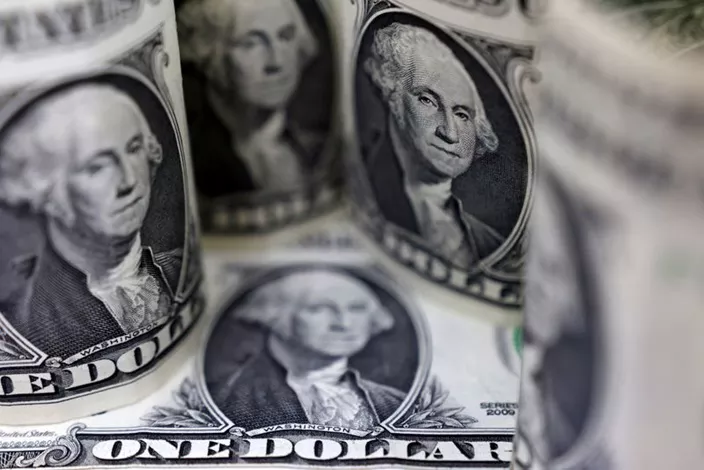The U.S. administration’s move to ease tariff tensions has led to recent gains in the U.S. dollar, but RBC Capital Markets cautions that further losses could still be ahead.
As of 07:10 ET (11:10 GMT), the Dollar Index, which tracks the dollar against a basket of six major currencies, dropped by 0.2% to 100.257. Despite this dip, the index is still on track to post a weekly gain of approximately 0.5%.
Markets have shown signs of stability following recent turmoil, largely due to the U.S. administration’s de-escalation efforts. These began with a 90-day tariff pause, followed by tariff reductions that exclude ‘stacking’ duties, and have now extended to renewed trade talks with China, as announced this week.
While there are expectations that the U.S. and global economies will suffer some negative impact, this has not yet been reflected in the more solid economic data. Although softer indicators, such as purchasing managers’ indexes (PMIs), have shown a dip in sentiment, the hard data has remained resilient. In fact, recent data from Europe, including stronger-than-expected GDP growth in the first quarter, painted a more optimistic picture ahead of “Liberation Day.”
However, it remains unclear whether this calm will last. RBC Capital Markets questioned the extent of damage already done by tariffs, acknowledging that it will take time for the full economic impact to unfold. While European economies may experience a slowdown in the second quarter due to reduced U.S. exports, domestic data such as consumer spending, investment, and loan growth remain solid. Additionally, Germany’s planned fiscal expansion could offset some tariff-related downturns.
RBC also raised concerns about the potential limits to central bank actions, particularly regarding inflation. Recent inflation data from the euro area exceeded expectations, and consumer inflation expectations have been rising. As a result, the bank emphasized that it will take more time to assess whether the economy is past its toughest period or still facing challenges ahead.
For now, RBC leans toward the view that the economy is in a “calm after the storm” phase. As a result, the bank has updated its forecasts, predicting higher values for EUR/USD, GBP/USD, and EUR/GBP over the next 12 to 18 months. RBC believes there is room for further asset reallocation, especially with the euro, which could see increased hedge ratios in the medium term.
Related topics:


